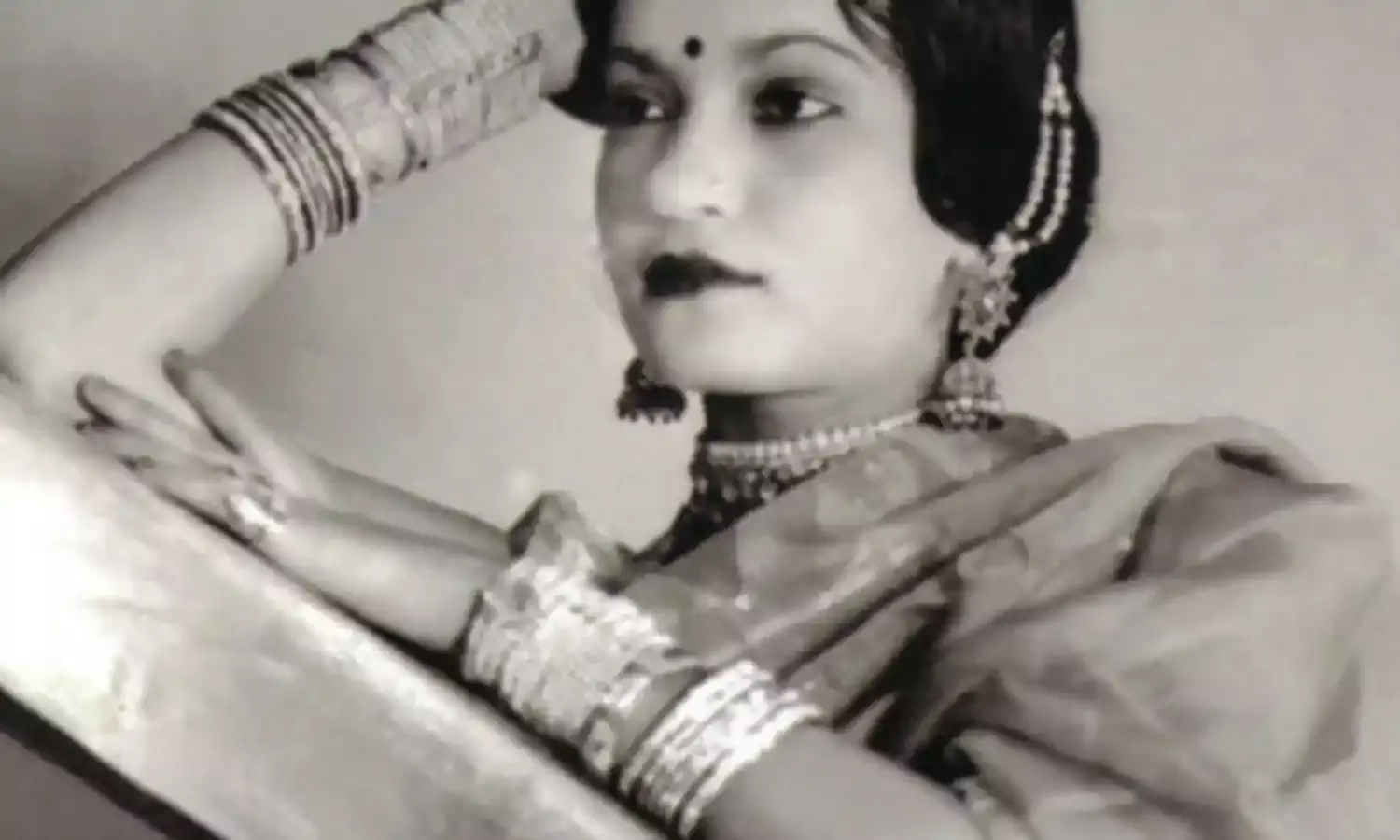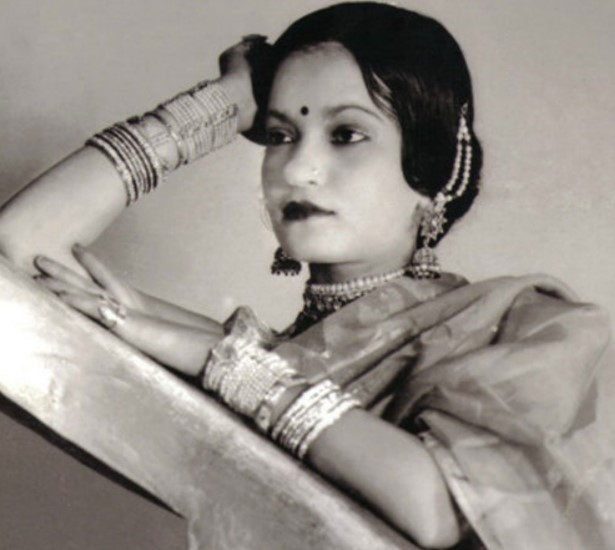Tireless Nightingale
Remembering Akhtari Bai Faizabadi (1914–1974)

Once upon a time there were two boys in love with the same fairy faced beauty. But instead of quarrelling, the love of both their lives only brought them closer to each other. They had many things in common, but the love that they shared for Begum Akhtar, the ghazal queen was special.
Historian Saleem Kidwai who passed away last August in Lucknow, was in his early 20s when Begum Akhtar died on 30 October, 1974. She was a family friend, neighbour and the love of Kidwai’s life.
Kidwai once said that after her sudden death, he did not know how to mourn the loss. He began to collect everything related to Begum Akhtar, including music and literature. Today that collection is precious for everything it tells the world about Begum Akhtar, one of the greatest vocalists of all times to come.
Kidwai had always known Begum Akhtar, but at the age of 17 years after witnessing a live performance, he became her slave. He did not tire of saying that Begum Akhtar is great because she sang poetry that was easily understood and which was able to bring out the unashamed romantic in her.
Indeed Begum Akhtar is loved by so many to this day perhaps because she added great poetry to her music, in such a simple way that a listener did not have to be a master in music or in literature to feel what she was singing.
It was Kidwai who introduced the Delhi born Agha Shahid Ali, a Kashmiri-American poet to Begum Akhtar in the late 1960s. Shahid Ali migrated to the USA in 1976. He died in 2001 after having written some wonderful verses, some of them inspired by Begum Akhtar.
Whenever he could, Shahid Ali spent time with Begum Akhtar. He was allowed to sit next to her on stage and had recorded many of her concerts. He was heartbroken at her death at the age of 60. Soon after the tragedy he agonised:
Your death in every paper, boxed in the black and white of photographs, obituaries, the sky warm, blue, ordinary with no hint of calamity, no room for sobs, not even between the lines. I wish to talk of the end of the world.
Do your fingers still scale the hungry bhairavi or simply the muddy shroud? Ghazal that death-sustaining widow, sobs in dark, dingy archives, hooked to you she wears her grief, a moon soaked white, corners the sky into disbelief. Ghazal, that death sustaining widow you have finally polished catastrophe. The note you seasoned with decades of Ghalib, Mir, Faiz: I innovate on a note-less raga.
Begum Akhtar inspired Shahid Ali to pen some of his most sorrowful verses. For Shahid Ali, Begum Akhtar was a ghazal, and the ghazal was her. He wrote:
in the picture: she smiles: she lights a Capstan.
sharp in flame, her face dissolves in smoke.
Begum Akhtar was adored by countless others. There is Yatindra Mishra from the royal family of Ayodhya as well. Mishra never met Begum Akhtar, but it was his dream to immortalise all the stories he had heard from his elders about the gorgeous songstress who was also a film star, into a book.
In Akhtari: The Life and Music of Begum Akhtar published in the 105th year of her birth, Mishra writes that he fell in love with all the legends his elders told him about her. A poet, editor and scholar of music and cinema, in the 250 page Akhtari he has collected more than 40 delightful essays written by a host of people whose life Begum Akhtar had touched.
Writes Mishra:
I have wanted to edit Akhtari ever since I grew old enough to understand the stories I heard about Akhtari Bai Faizabadi’s relationship with our family. Listening to the legends about her personality, the way she spoke, her conduct and dressing, her way of life, her obsession with courtesy and respect, and her unsurpassable talent kindled in me an inexplicable idolising passion for her. I have been so crazy about music that apart from classical music and semi classical music I have always looked for hidden gems in folk and cinema music too.
My paternal grandmother, the late Rajkumari Vimla Devi was equivalent to a music society all by herself, having been not only a singer but also accomplished in playing many uncommon instruments. Growing up in such an environment I have always tried to gain a deepest understanding of who Begum Akhtar was from the perspective that she was a unique personality from Avadh whose music made its mark in its own special way.
Begum Akhtar was born in October and she died in the same month. And every October memories of Begum Akhtar come tumbling out of different corners of the city as many a private, and public tribute is paid to the legendary artist who lived in Lucknow for over three decades.
Today is her 47th death anniversary, celebrated with hazri by ghazal exponent Chandan Das at the marble memorial that Kidwai helped to build at Begum Akhtar’s grave.
It is Kidwai who led the initiative to turn into a garden the resting place of the tireless nightingale. A harsingar tree that stands guard to the memory of Begum Akhtar. The tree provides breeze and shade, and it showers the burial site with fragrant blossoms, as if to say that Begum Akhtar has not been forgotten by Lucknow.
Akhtari: The Life and Music of Begum Akhtar edited by Yatindra Mishra is published by Harper Collins, 2021




